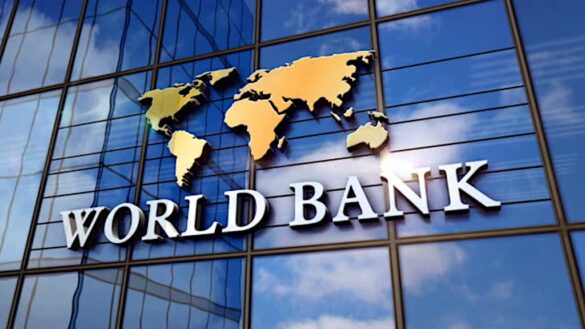Despite a projected uptick in Nigeria’s economic growth, the World Bank has raised concern over the rising levels of poverty in the country.
In its latest Africa’s Pulse report titled “Improving Governance and Delivering for People in Africa”, the Bank cautioned that resource-rich nations like Nigeria are expected to experience limited progress in poverty reduction due to falling oil revenues and structural fragilities.
The report predicts that poverty in countries such as Nigeria and the Democratic Republic of Congo could rise by as much as 3.6 percentage points between 2022 and 2027, despite ongoing economic reforms and moderate GDP growth.
“Resource-rich countries are expected to see less progress in terms of poverty reduction,” the report stated.
The global financial institution further noted: “Importantly, poverty in resource-rich, fragile countries (which include large countries like the Democratic Republic of Congo and Nigeria) is expected to increase by 3.6 percentage points over 2022–27.”
Although the Nigerian government has introduced a number of social welfare programmes in the past two years aimed at cushioning citizens against economic hardships, these interventions have not been sufficient to significantly reduce poverty levels.
Recent reforms introduced about 20 months ago were intended to liberalise the economy by removing artificial controls.
While these policy changes brought some economic advantages, they have also deepened the poverty crisis, with the number of Nigerians living in poverty climbing from 104 million to 129 million within just one year.
According to the World Bank, Nigeria now accounts for 19 percent of the total poverty in Sub-Saharan Africa. It is followed by the Democratic Republic of Congo (14 percent), Ethiopia (9 percent), and Sudan (6 percent).
Still, the World Bank maintains that Nigeria’s economy will see steady growth in the near term. It projects a 3.6 percent growth in 2025, and a slight uptick to 3.8 percent by 2026–2027.
“Economic growth is expected to remain moderate in Nigeria,” the World Bank noted.
“It is expected to increase from 3.4 percent in 2024 to 3.6 percent in 2025, and slightly increase to 3.8 percent in 2026–2027.”
The anticipated recovery is expected to be driven largely by growth in the service sector—particularly in finance, information and communication technology, and transport—as well as an improvement in oil production aligning with Nigeria’s OPEC+ quota.
These forecasts differ from the International Monetary Fund (IMF), which recently revised Nigeria’s 2025 growth projection downwards to 3.0 percent, compared to the previous estimate of 3.4 percent in 2024. The IMF cited declining oil output and rising global trade tensions as reasons for the adjustment.
Despite both global institutions predicting more cautious growth, Nigeria’s 2025 national budget outlines a much more optimistic target of 4.6 percent GDP growth.
Speaking on the issue, investment banker and economist Adetilewa Adebajo stressed the importance of structural reforms and investment in infrastructure to boost economic resilience and global investor confidence.
“Sale of oil and gas JV assets to optimise equity within the FGN capital structure and balance sheet are crucial for Nigeria’s path towards sustainable development,” Adebajo said.
He added: “Deliberate Investment projects such as the Agro Airport development and Olokola deep sea port, in Ogun State, major infrastructure projects led by companies like Arise and Dangote, need to be replicated nationwide.”











